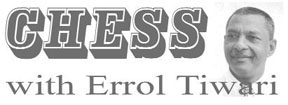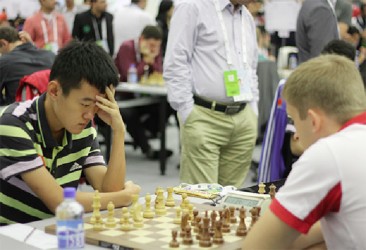
The real reason for the Soviet dominance of chess, and now the Chinese and even Cuban dominance, is, of course, their numerical preponderance.
The former Soviet Union had more first-rate players than any other three nations combined. By sheer weight of numbers, in similar fashion, masters would eventually emerge from among our local contingent, and Guyana’s standing in international chess would be greatly enhanced. The GCF should assure us that Kings, Queens and Pawns are going to be extracted from their decorative boxes to facilitate an increase in the quota of local exponents who practise the unique art of playing chess.

From conversations which I have had with chess players, seasoned and amateur, an element of disappointment was expressed in relation to the manner in which tournaments are being conducted. The players to whom I spoke prefer the prize money for a tournament to be publicized before the commencement of the said tournament.
They argued that in horse-racing, as in other disciplines, prize monies are posted publicly beforehand. What is so different about chess? They pointed out further that players who reside out of town, would be in a more favourable position to make a determination of whether they should participate or not. For an overseas chess tournament, countries would usually publicize the breakdown of prize funds. Realistically, this could well be one of the reasons behind our failure to increase our numbers at tournaments.
It is worthwhile to note that there is a plethora of seasoned chess players who do not participate in tournaments. But each day the Bourda Mall bordering Church Street is filled to capacity with persons playing chess and waiting to play chess. It is also worthwhile to ponder that ever since the change of guard of the GCF in February, two tournaments have been held so far this year. One was a blitz which was held on a Saturday morning in the Main Street Avenue, and the other was the ECI rapid tournament that was held early in June





